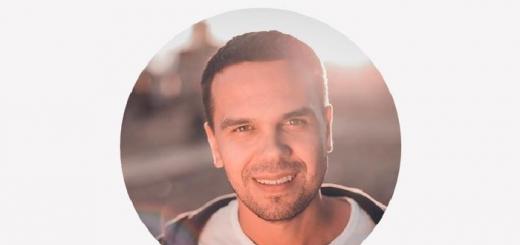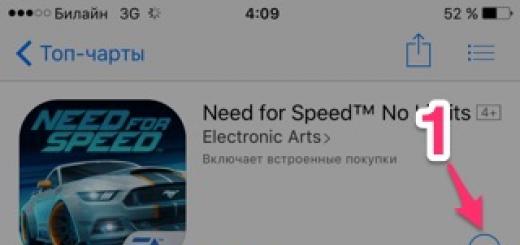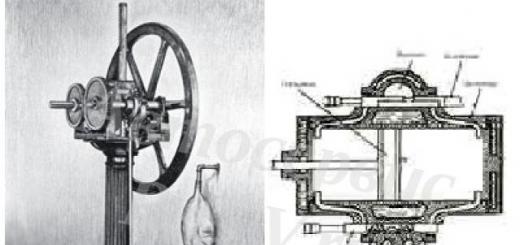Gazprom Neft PJSC (location: 190000, St. Petersburg, Galernaya st., 5, lit. A), which is the copyright holder of the Work, (hereinafter referred to as the Licensor)
in accordance with Article 1286.1 of the Civil Code Russian Federation grants the right to use the Work to a person who wishes to use this Work and who is ready to fully and unconditionally accept the terms of this open license (hereinafter referred to as the Licensee).
- Subject of an open license: the right to use the Work, that is, a specific photographic or audiovisual work posted on a website on the Internet: , within the limits established by this open license. Each Work is subject to a separate open source license. Type of license: simple (non-exclusive) license. Term of the open license: 1 year, counting from the date of granting the open license. The territory where the use of the Work is allowed: the territory of the whole world. The open license is free of charge.
- An open license is an accession agreement. An open license is considered granted (an accession agreement is considered concluded) at the moment of full and unconditional acceptance by the Licensee of the terms of an open license (acceptance). The following actions of the Licensee will be considered acceptance: pressing the "I accept" button located under the text of this open license, as well as writing the Work to the computer's memory (saving, that is, downloading the file containing the Work).
- The Licensee is granted the right to use the Work exclusively in the ways expressly specified in this open license, namely:
- reproduction of the Work, that is, the production of one or more copies of the Work in any material form, as well as the recording of the Work in the computer memory;
– distribution of the Works by alienating its copies free of charge;
- public display of the Work using technical means in a place open to the public, or in a place where there is a significant number of persons who do not belong to the usual family circle;
- inclusion of the Work in the composition of information and scientific articles, catalogs, encyclopedias and Internet sites. Any other use of the Work is prohibited. - The Licensee has no right to assign, transfer rights and/or obligations to third parties, as well as pledge the rights obtained under this open license. The Licensee is forbidden to process the Work in any way, create composite works (except as expressly specified in this open license), include the Work in complex objects, create derivative works (processing, screen adaptation, arrangement, staging, etc.), add to the Work changes and additions. The work may be used only in the form in which it is posted on the website: . The use of the Work in fragments (in separate parts) is prohibited. The Licensor does not grant the Licensee the right to use the Work to create a new result of intellectual activity (new objects of intellectual property).
- The Licensee undertakes to indicate the name of the Licensor as the copyright holder for each use of the Work.
- Use of the Work in violation of the terms of this open license is recognized as illegal use of an intellectual property object and entails civil, administrative and criminal liability.
- The Licensor has the right to unilaterally completely or partially refuse an open license if the Licensee grants third parties the rights to use the Work.
The meeting of members of the Avangard Hockey Club Association adopted the statement of the Chairman of the Board of Directors Alexandra Dybalya about resignation. Director for regional sales of Gazprom Neft elected new chairman of the board of directors of the club Alexander Krylov.
“In recent years, Avangard has made significant progress in important directions activities. First of all, it concerns the development of the hockey school: last season, almost half of the Avangard players were the club's pupils, and the youth team of the main team demonstrated leadership throughout the season. The project of our Hockey Academy has reached the finish line: before the end of the year, together with our colleagues from Gazprom, we plan to commission its central complex with two ice rinks, medical center and hostel. After that, the complex will be merged with the hockey school within the Academy. It is also very important for us that Avangard is in the top three in terms of attendance among Russian KHL clubs. But now is the time to take the next step, above all in athletic performance. That is why we invited Maxim Sushinsky to the position of club president, who has a clear understanding of the club's goals and ways to achieve them. The club should have a development strategy and a transformation plan, which will be led by a new chairman of the board of directors. My colleague Alexander Krylov knows the specifics of hockey well and he has the necessary managerial qualities to implement the tasks facing the club. I remain a fan of Avangard and will continue to support the club both on and off the arena," he said. Alexander Dybal.
“I see my task in that Avangard strengthens its status as the leading club in the KHL, shows beautiful, sparkling hockey that the audience likes, and always achieves the highest possible results. I promise to do everything so that each game turns into a holiday, and the Omsk Arena hall is filled with fans and sports lovers. Chairman of the Board of Gazprom Neft Alexander Dyukov at a personal meeting before my election promised to support the club both in terms of strengthening the composition and in terms of developing and operating a new club academy. Together with the new president of the club, Maxim Sushinsky, I appeal to all the fans - let's support the club together, just like in the last playoffs. Together we win!" - said the chairman of the board of directors of the club Alexander Krylov.
Alexander Vladimirovich Krylov
Regional Sales Director, Gazprom Neft
Born March 17, 1971 in Leningrad. In 1992 he graduated from LMU (Leningrad), in 2004 - the Law Faculty of St. Petersburg State University, in 2007 - Moscow International high school business "MIRBIS" MBA majoring in "Strategic Management and Entrepreneurship". Also in 2014, he received an MBA in oil business from the Stockholm School of Economics.
From 1994 to 2005, he worked in senior positions in real estate (general director, president) in the Russian-Canadian JV Petrobuild, CJSC City Real Estate Center, CJSC Alpol.
Since 2005, he has held the position of Deputy Head of the Sales Directorate at Sibur LLC. In 2007, he moved to the position of Head of the Gazprom Neft Oil Products Supply Department. Since December 2009 - Regional Sales Director of Gazprom Neft.
Repeatedly included in the rating of "Top-1000 Russian managers", according to the publishing house "Kommersant", and was also recognized as the best commercial director of Russia in the direction of "Energy and fuel complex". In October 2014, he received the Aristos award, becoming the first in the Best Commercial Director nomination.
The Regional Sales Directorate of Gazprom Neft PJSC manages the sales of motor fuel in Russia, the CIS and Eastern Europe. The Gazprom Neft filling station network unites over 1,700 modern filling stations of various formats in Russia, the CIS countries and Eastern Europe.
Press service of HC "Avangard"
In an economic downturn for companies operating in the consumer market, maintaining customer loyalty becomes especially important. One of the largest players in the Siberian fuel market, with its own production base in the region, is the Gazprom Neft filling station network (GPN). It is widely represented in Omsk, Novosibirsk, Kemerovo regions The company is also actively developing in neighboring regions. Alexander Krylov, Regional Sales Director of Gazprom Neft PJSC, spoke about how to keep a buyer on the fuel market, competition and marketing costs.
- How much for Last year increased competition in the fuel market?
In a crisis, competition always increases, the seller's market turns into a buyer's market. Players are more aggressive and seek to win a client with the help of a pricing policy.
If you drive through the regions, you can notice the dominance of one or another network of gas stations. For example, in Omsk, Novosibirsk, the GPN gas station network prevails, in the Altai Territory - Rosneft. There may be a feeling that the territories are divided among large corporations. What are you guided by when making a decision to promote the network in a particular region?
Our network of filling stations sells our own fuel, so the location of Gazprom Neft's refineries is of primary importance to us. The easternmost of them is the Omsk Oil Refinery, which provides gas stations in the Siberian Federal District with gasoline and diesel fuel. This plant is one of the most powerful and modern in the country, and we, in turn, can guarantee the safety of the factory quality of fuel to gas station customers thanks to a transparent logistics scheme and control at every stage of delivery.
Last year, Gazprom Neft entered the Altai Republic with its filling station network and increased its presence in the Krasnoyarsk Territory. Why these particular regions?
We consider both the Krasnoyarsk Territory and the Republic of Altai to be promising for development. At the end of 2015, we leased 14 stations in the Krasnoyarsk Territory, and now we have to evaluate their effectiveness. The Republic of Altai is one of the most popular areas of domestic tourism. The flow of motorists coming to local resorts from neighboring regions and beyond is increasing year by year. It can be said that we are meeting the needs of our customers, because the issue of the quality of fuel and service for those who traveled hundreds or even thousands of kilometers behind the wheel of their own car is a guarantee of a comfortable journey.
- What market share does the company have in Siberia today?
In the retail segment - 30%. On the this moment We have 390 filling stations in the Siberian Federal District.
- Under the conditions of the crisis, according to your observations, did the purchasing power decrease?
With a slowdown economic development Naturally, the solvency of the population also decreased, and this could not but affect consumer behavior. The price factor has become more significant, but at the same time, people have learned to appreciate quality, so the most relevant is the ratio of price and quality.
- If there is no way to announce a significant discount, how can you attract a buyer?
Trust, I guess. Too much discount means you overcharged the price in the first place. The bonuses that we return to our customers as part of the loyalty program are a kind of gratitude for the choice and trust. And these figures are directly proportional: the more you buy from us, the more you save.
Since the beginning of 2016, you have updated the loyalty program platform, and if many companies give their customers loyalty cards, you decided to sell them. What conditions attract customers to you?
In a month and a half, we have sold more than a million new bonus cards "On Our Way", and there are more and more people who want to purchase them, in some places we even have a deficit, which we promptly pay off. Unlike loyalty programs such as airlines, where miles are not always easy to turn into tickets, our bonuses are real money that can be converted into goods and services at any time. The principle is this: you spend money, we return part of it to you as bonuses, for which you can purchase both fuel and goods and services at our gas stations.
We are not the only ones on the market, the situation is absolutely market, the client chooses from the whole variety of offers. When a person buys a card, we know for sure that our program is in demand. And if a million cards were bought in a month, it means that it is also popular. And, of course, the fact of purchase means that the person will use the card. Of that million, 85% have already made purchases with the new card.
Over the past year, we returned more than 6 billion rubles on cards. in the form of bonuses. Loyalty costs us dearly. But on the other hand, customers have experienced real, not mythical benefits.
-Does the bonus program make a profit or do you write off expenses for marketing?
You overestimate our marketing budget. Moreover, we understand that no coffee and buns at gas stations can lure you if the fuel is bad. The network of Gazpromneft gas stations guarantees the preservation of the factory characteristics of the fuel supplied from the company's own refineries, and that is why people come to us to refuel. And since they're here, why not offer them something else? And it's not just profitable, it's a serious part of the business. With proper planning, related products and services should fully cover the payroll of employees, and in some cases the gas station would be profitable even without fuel. As for the results, in two years we have grown by almost 50% in this area, and we even joke that we have one of the largest networks of so-called "convenience stores" in Russia.
- What are your plans for the development of this segment? You already have co-branded products.
Now, at the stations of our network, we sell over 200 products under three of our own brands. The first is Gazpromneft. Basically, these are basic related products of daily demand. G-Drive - products from the premium segment that are associated with our branded fuel. DriveCafé is our third brand. In terms of sales of G-Drive energy drinks, we have long overtaken all competitors - in the best periods we sold up to 80 thousand cans per month. We began to compete with Red Bull on the shelves of our gas stations. So the idea was born to make a joint product, which was implemented. The launch of Red Bull for G-Drive in 2015 set a global precedent for co-branding with Red Bull and caused great controversy. We do not plan to stop there and will present new products under our own brand in the near future.
Has your marketing spend increased? How did the company change the strategy of its behavior in the market under the influence of the crisis?
We have kept our traditional activities, such as federal promotions for customers with good prizes. Literally last week, we summed up the results of the winter campaign "Refuel like a champion!", in which 6 car enthusiasts from different regions of the country received trips for two to Sochi. Two of them, by the way, are Siberians.
Moreover, as you know, we have a unique channel for promoting G-Drive premium fuel. This is motorsport. In 2015, for the first time in the history of Russian motorsport, the G-Drive Racing team not only climbed the podium, but became the FIA WEC world champion in endurance racing. Thanks to the success of the G-Drive Racing project, we have been able to reduce the cost of its implementation by up to 30%. But this is not due to forced savings. It's just that our sports success has made the project attractive to sponsors, it has turned into a brand that generates income.
- According to your assessment, is the retail division of the company ready for the crisis?
Back in 2008, I realized that the issue is not in the crisis, but in your ability to adapt to new conditions. What's going on in the market right now? People and companies are becoming extremely conscious about their spending. They choose the best at the best price and really analyze all the available offers. Either you offer the buyer a competitive product, or he will leave. They don't leave us. Rather, on the contrary. This means that we are doing everything right and will try to get through the difficult economic situation without losing a single client.
PRIVATE BUSSINESS
Krylov Alexander Vladimirovich
Born March 17, 1971 in Leningrad. In 1992 he graduated from LMU (Leningrad), in 2004 - the Faculty of Law of St. Petersburg State University, in 2007 - Moscow International Higher Business School "MIRBIS", MBA majoring in strategic management and entrepreneurship. He also received an MBA in oil business from the Stockholm School of Economics.
From 1994 to 2005, he worked in senior positions in the Russian-Canadian JV Petrobuild, CJSC City Real Estate Center, CJSC Alpol.
Since 2005, he has held the position of Deputy Head of the Sales Directorate at Sibur LLC. In 2007, he moved to the position of head of the Gazprom Neft Oil Products Supply Department. Since December 2009 - Director of Regional Sales of Gazprom Neft.
In October 2014, he received the Aristos award, becoming the first in the Best Commercial Director nomination.
COMPANY PROFILE
PJSC Gazprom Neft
A vertically integrated oil company whose main activities are the exploration and development of oil and gas fields, oil refining, and the production and marketing of petroleum products. The proven hydrocarbon reserves according to the SPE (PRMS) classification of the company amount to 1.44 billion tons of oil equivalent, which puts Gazprom Neft on a par with the 20 largest oil companies in the world.
The structure of Gazprom Neft includes more than 70 oil producing, refining and marketing enterprises in Russia, near and far abroad countries. The company processes about 80% of the produced oil. In terms of oil refining, it is one of the three largest companies in Russia, and in terms of production, it ranks fourth. The company operates in the largest oil and gas regions of Russia: Khanty-Mansiysk and Yamalo-Nenets autonomous regions, Tomsk, Omsk, Orenburg regions. The main processing facilities are located in the Omsk, Moscow and Yaroslavl regions, as well as in Serbia. In addition, Gazprom Neft is implementing production projects in Iraq, Venezuela and other countries. Gazprom Neft's products are exported to more than 50 countries and sold throughout the Russian Federation and abroad through a network of its own distribution companies. The network of filling stations of the company includes almost 1.75 thousand stations in Russia, the CIS countries and Europe.
Interviewed by Alina Ilyina
Alexander Krylov:
“Most startups are not ready to be entrepreneurs”
RODION BOLOTOV
nikita careful for inc.
Alexander Krylov: “Most startups are not ready to be entrepreneurs”
RODION BOLOTOV
nikita careful for inc.
Gazprom Neft has launched the second StartupDrive program for transport and logistics startups. In the company itself, the accelerator is considered as part of a large project to work with innovations, which has been developing for several years. In an interview with Inc. Regional Sales Director of Gazprom Neft Alexander Krylov told how the company has learned to develop its employees into entrepreneurs and what the accelerator will give start-ups.
About digitalization: data and fuel are the basis of the ecosystem
Gazprom Neft has always been interested in digitalization. Every oil company has two major components: upstream and downstream. Upstream is exploration and mining. Downstream - processing and marketing of finished products. In fact, these are two companies under the same brand: different processes, different employee profiles, different corporate culture. But since there has always been a struggle for business efficiency, digitalization both there and there began when it itself appeared. « number » .
For me, the digitalization of a company consists of two components: people and technological readiness to implement new ideas. And my goals as a manager were to provide the IT infrastructure and the data team, create the organizational environment for data and digital innovation, and change the corporate culture. The latter is especially true for the middle level of management.
Digitalization and business automation are different links in the same chain. At first, with the help of digital, we automated production and business processes, then we began to collect and store data, and now we are learning how to use it. For example, all predictive analytics is based on the correct use of data.
The client on the road is our main value. We will pack and deliver the fuel where and when it is needed. And today the digital client lives in his smartphone. He chooses the supplier who offers him the most convenient and most personalized service. And our task - build an ecosystem for it, provide an expanded range of services and goods. We need a guaranteed distribution channel that will allow us to ship products daily. You need to know your customer and keep him in the channel. Therefore, we do not just supply fuel, now it is important for us that the client does not experience problems on the road.
We have always understood that data is the future of business. This is a story that can be called "Quality Data as a Service", our readiness to quickly respond to the market with flexible tools based on Big Data and Business Intelligence. Ability to make decisions based on data. The ability to do new things at the lowest cost. It is a matter of survival and flexibility, efficiency and time-to-market for new products.
The more data we collect about our customers, the better we get to know them and the more personalized our offers. For example, at first, with the help of digitalization, we made it easier for truckers to refuel. And then we found out that they have a lot of needs on the road that we can satisfy based on our platform: park, fill up AdBlue (fluid, reduces emissions of harmful substances from a diesel engine) or windshield washer fluid, use a toll road, sleep in a hotel or stop by a tire shop. All these functions already constitute a full-fledged ecosystem, it is no longer just an app for selling fuel. The result was a platform for the interaction of different market participants.

Gazprom Neft and data
2011. Launching the key data management system as a management reporting skeleton. Master data is reliable information about customers, products, counterparties and vehicles. Qualitative benchmarking of indicators for all regions immediately gave a tangible result in efficiency.
year 2013. Launch of a unified BI system. Thanks to Business Intelligence, a single terminology, common data marts and an environment for the exchange of analytical ideas for all departments have appeared. Over 4 years of development, the BI system of the company's sales business has become one of the most functional in Russia, and the internal BI Competence Center has replaced external contractors with its own expertise in creating flexible analytics.
2018 year. Launch of the data lake. Comprehensive analytics initiatives, years of data and engagement external sources demanded the creation of an infrastructure for Big Data. The “data lake” processes all client transactions and calculates client segments, analyzes mobile application logs and customer feedback, examines video surveillance data at stations, incidents on the way of a product from a factory to a customer’s tank, including even such things as a fuel truck driver wearing a seatbelt or not. The Data Science Competence Center appears, and the search for efficiency based on advanced mathematical models begins in analytical sandboxes.
2019 year. Data governance and Data literature projects. Data management is the basis for the democratization of data and the sustainable development of complex analytical solutions. Full integration of Data governance with the "data lake" provides reliable control over the origin of data and analytical models, up to the introduction of elements of artificial intelligence, when the algorithm makes a decision for a person.

Our data processing and analysis systems are ready to build difficult decisions that will allow them to extract additional value from them. The "data lake" and the data management system are the basis for development, for new management models and new products. Already, 50% of all analytical projects and initiatives are being implemented on their basis, in 2020 there will be 75% of such projects. This is our material part for further innovation and development of client ecosystems.
The next step is the full development of solutions based on the data we have accumulated. In my understanding, in order for these solutions to appear in the company constantly, it is necessary to build an effective system for working with innovations, which will both attract new ideas from outside and help develop the proposals of the corporation's employees.
I believe that most business innovations should be initiated by the people who run the business. Each production is a unique process that only those who work on this site understand. They know the features of the equipment, the strengths and weaknesses of production, they see opportunities for growth. So we came to the need to develop domestic entrepreneurship.
About domestic entrepreneurship: it used to be worse
It is important that company employees know that everything they come up with can be easily tested, developed and implemented in the process. For me, an internal entrepreneur is a person who is not indifferent to his work, who tries to make it better and more efficient.
The innovativeness of a corporation and its willingness to take risks depend, first of all, on top management. A large company is a risk-off model by default, but risks can be minimized by creating "sandboxes", special zones allocated for piloting new solutions.

The corporate entrepreneurship model in « Gazprom Neft» developed in stages. First, we launched the "Idea Factory" format: employees formulated ideas, a special committee identified the most viable of them - and then they tried to implement them. However, not all good ideas could be fully implemented, because the employees were not removed from their production plans. The introduction of innovations required additional employment, and people lacked both motivation and time.
Then we moved on to the next format of work - once every 3 months, any employee can propose a project for a pitch. During the pitches, they compete with each other, and if the project is approved, then its author becomes the owner of the product. He gets a little money to develop an MVP and test a product hypothesis in a business environment and shows the result on the next demo. Then we make a decision on the development of the project. It is important that now the owner of the product is relieved of his routine duties, thus we stimulate his entrepreneurial abilities.
In addition, 2 years ago I divided the business into two circuits: Run and Change. Run, as the name implies, - it is the current streaming activity of the business. And Change is a kind of laboratory, our agile cluster, where teams become micro-businesses, with their own P&L (profit & loss report), create and improve their products, attract third-party developers. Naturally, both the horizons and the approach to work are changing.
When we launched the pitches, there was a bias towards ideas rather quickly,- people brought ideas, made pitches, but did not yet bear responsibility for the result for the business. As a result, there were ideas for the sake of an idea, with unpredictable results. We realized that both Run and Change are two sides of the same entity. Innovations must not only be invented, they must be conveyed to the client, made part of the business.
Previously, we rejoiced at the very appearance of initiatives, because there were none. When there were enough ideas, we taught our internal entrepreneurs to take responsibility, introduced KPIs. If you want your idea to be noticed, be ready to achieve certain business indicators and be responsible for them. Now if an employee proposes an idea mobile application, he must take on certain obligations: the number of downloads, the number of sales or transactions. If the indicators are not achieved within three months, we at a meeting of a special commission analyze what successes are and whether it makes sense to continue working further. If the indicators are unsuccessful, the project is closed.
Filling stations.GO: from 9 thousand to 4 million liters of sales per year
December 2018. Gazprom Neft launched the AZS.GO app, which allows you to pay for fuel at the stations of the Gazprom Neft network. The application was developed for 4 months, at the start it was supported by 100 gas stations in Moscow and St. Petersburg. In the first month of work, 9,000 liters of fuel were ordered through gas stations.GO.
December 2019. Every month, 4 million 200 liters of fuel are ordered through gas stations.GO. The number of orders is growing monthly by 20 - 30%, the active audience of the mobile application is more than 300 thousand users. Online payment for refueling is available throughout the Gazprom Neft network in Russia.

About startups: look not for money, but for scale
In my understanding, the banking business in Russia is less competitive than the fuel market. We operate in a highly competitive market where 4 large companies are fighting for their customers. Therefore, in addition to our own teams - micro-businesses within the company - ideas should be looked for in the outside world, in the world of entrepreneurs and start-ups, including in related fields. For us, the ability to work with startups is a matter of efficiency and competitiveness.
I have seen many startups in Lately none of them is ready to be an entrepreneur. In Russia, few start-ups grow into a business, because start-ups do not yet have the necessary skills: they do not know how to manage a project, calculate the economy, and do not know the legal subtleties. And I believe that one of the most important tasks of large companies is to help startups acquire these skills, to make their business sustainable.
You need to come to us not for money, but for scale. According to my feelings, the main problem of a startup is that they most often do not have a unit economy. They have an idea, the market demand is confirmed, but there is no scale. Our task is to give them a scale, so in April of this year, on Cosmonautics Day, we launched the first set in StartupDrive, an accelerator for startups. 200 companies participated in the selection, 5 Russian startups involved in developments in the areas of cargo transportation, taxi, car sharing, evacuation, transport insurance became the finalists. We plan to integrate two companies - Cartaxi and Rent-a-ride - into our platform soon.
StartupDrive 2.0: open set
StartupDrive by Gazprom Neft has launched recruitment for the second acceleration program for startups in the areas of logistics, cargo transportation, online services for drivers, carsharing, gas station infrastructure and retail technologies, as well as other products related to the transport market.
The selection to the program is open, potential participants can apply through the official website www.startupdrive.ru. Open admission to the program will be supported by Disruptive.vc and will end on December 20, 2019. Selection results will be announced on January 24, 2020. A three-month intensive will be held by 10 startups.
We do not work with ideas, so we expect at least an MVP from accelerator participants. It is important for us that a startup has a mature MVP and that the need that this MVP fills is confirmed by users. That is, they must have confirmed product hypotheses, a mature MVP and, preferably, first customers. At this stage, we understand that we can help a startup refine its product, grow its user base, and improve its business. If there is no product, helping it develop and enter the market is a long process.
We are interested in helping startups that have the potential to develop our business and its ecosystem. We strive for horizontal business diversification by providing customers with new related services that are not directly related to the gas station network. The acceleration program gives an understanding of how interesting the product is to users, our customers. After the completion of the first acceleration program, it became clear that the format was successful for the company and for startups. Therefore, I repeat, our goal is to scale a startup, not invest in it, although I do not exclude this possibility if we are interested in the business model of a particular startup.
The acceleration program keeps our employees in good shape, developing internal entrepreneurship. People begin to look more broadly at things, at the client and his needs, and begin to see opportunities to meet these needs.
3.Long-term partnership, for example as a minority shareholder. The company will give the startup a resource: a customer base or special conditions cooperation.
“First of all, this quality fuel and uniform standards for the provision unified set services"
In just a year, gas stations under the Gazpromneft brand literally burst into the ranks of the most popular filling stations among motorists. Alexander Krylov, Regional Sales Director of Gazprom Neft, talks about what attracts customers to this brand.
A little over a year ago, a large-scale rebranding program for your filling station network was launched. What is its purpose?
In fact, the complex process of creating a new brand began back in 2007, and in September last year the project entered its active phase - the introduction of the brand at the company's gas stations. The fact is that a couple of years ago, our gas station network was a set of enterprises of various formats, and even under different signs - Sibneft, Slavneft, EPetrol, Alliance, Novosibirsknefteprodukt. The task was to unify them, bring them to uniform standards of work, fuel quality, and pricing rules. In a word, to create a single network of filling stations under a global brand. Therefore, as part of the rebranding, stations are also being modernized: standard formats of filling complexes, modern standards of personnel work, and other components are being introduced.
It was reported that this project cost the company about 7 billion rubles. Where does the money go?
The average cost of rebranding one filling station is about 8 million rubles. This includes redesigning appearance stations, shop refurbishment, repair or replacement of fuel dispensers, security systems… Filling stations with high sales potential usually undergo complete reconstruction.
And what is the network of your filling stations in general?

The dynamics is as follows: as of January 1, 2008, there were 770 stations in operation, a year later there were 864 of them, by the beginning of 2010 - 969, and by September of this year, the number of filling stations had already reached 994. Of these, 819 are located in 20 regions of Russia, another 175 are operating in the CIS countries: Belarus, Kyrgyzstan, Tajikistan, Kazakhstan. The company's retail network is also represented in Serbia, however, under the NIS brand. In the next five years, we plan to double the number of stations. The development of the network is aimed at expanding the zone of presence throughout the European part of Russia, and primarily along the main federal highways, as well as in certain regions beyond the Urals. The presence abroad will also be expanded.
According to what standards are gas stations opened by Gazprom Neft?
The requirements are the highest - both in terms of the quality of placement and the format of the stations themselves. For example, most often there is a cafe and a shop, where, by the way, we offer a number of our other products. In particular, a wide range of engine and transmission oils from the latest G-Family family. The presence of a car wash and other services depends on a number of factors: area, demand for these services, profitability. The fact is that we work in a very serious and complex business, it is associated with high risks and is designed for a long-term return on investment. On average, investments in the construction of one filling station amount to 50-60 million rubles, excluding VAT. And the payback is achieved only after seven or eight years with a sales volume of at least 4,000 tons of fuel per year. With lower indicators, the project will most likely turn out to be unprofitable.
Who provides your filling stations with fuel? How is its quality controlled?
The main supplier of fuel to all the company's stations, with the exception of those in Belarus, is Gazprom Neft. Purchases from third-party suppliers for sale in Russia, Kazakhstan, Kyrgyzstan and Tajikistan are sporadic and can, as a rule, be carried out only when scheduled repairs are being carried out at the company's refineries. In Belarus, our supplier is the state enterprise Belarusneft. As for the quality of fuel, there is a multi-level system for checking it. This includes incoming control of petroleum products upon receipt at the tank farm in a certified laboratory, and acceptance control in each fuel truck upon delivery of fuel to gas stations, and monthly checks at each gas station by a mobile laboratory, and carrying out control analysis individual samples in a certified stationary laboratory. Plus, mandatory monthly quality control by a mobile laboratory in fuel trucks leaving oil depots. By the way, all our fuel trucks are equipped with route tracking systems, so it is impossible to leave it anywhere.
How serious is the competition in the fuel retail market?

Her level is very high. Judge for yourself: in Russia there are 0.65 gas stations per thousand cars, while in Poland this figure is 0.35, in France - 0.32, in Germany - 0.3. Only in the USA, where large oil companies consider this segment uninteresting, the filling station saturation is 0.67. At the same time, a clear trend towards consolidation of the retail market of petroleum products is visible in Russia. If in 2005 vertically integrated oil companies controlled 37% of sales, now they account for about 50% of sales. Our positions are especially strong in Western Siberia, the Sverdlovsk region, Kyrgyzstan and Tajikistan. We are also actively developing a network in St. Petersburg and plan to take a significant market share in Moscow and the Moscow region after the rebranding and reconstruction of gas stations owned by the Moscow Oil and Gas Company.
Is it difficult to develop business in regions where the position of local firms is strong?
The potential for building new filling stations is severely limited almost everywhere. However, the presence of independent players in the regions opens up opportunities for development through their absorption. And we are not afraid of competition with local brands, because we are convinced that the federal brand of a large oil company is more attractive to consumers. This is confirmed by statistics.
What, in your opinion, is the main competitive advantage of your stations?
First of all, it is high-quality fuel and uniform standards for the provision of a unified set of services. People know that when they stop at any Gazpromneft gas station, they are guaranteed to receive quality service, that they will be met by qualified and friendly staff. In addition, we rely on the infrastructure of the European level. Shops and cafes are open at many of our stations, additional services may be offered: tire inflation, washing, service stations, tire fitting. Finally, an important advantage is the provision of affordable competitive prices at filling stations, taking into account the purchasing power of the population in a particular region.
Is it difficult to win over customers from other brands?
Winning a loyal customer is hard. But in our country, even within the same network of gas stations, not all operators provide a decent quality of fuel and service. This allows us to rely on our competitive advantages: Gazprom Neft pays special attention to the quality of services and products.
What client programs do you use?
All Gazprom Neft gas stations in Russia operate the federal bonus program “We're on the Way”. When buying goods and services at our gas stations, its participant receives a discount, which is taken into account on his card in the form of points. The accumulated bonuses can be spent on goods and services provided by our network. There are already more than half a million such people in Russia. But this is only the first step. In the future, we plan to develop this program and expand the possibilities of cardholders within the framework of co-branding projects. Customers will also be able to receive and spend bonuses, for example, in supermarkets, service stations, beauty salons, sports clubs. We will continue to hold promotions with the possibility of receiving additional gifts and bonuses. For example, this year the most active participants of the On Our Way program became owners of SUVs and other valuable prizes.










